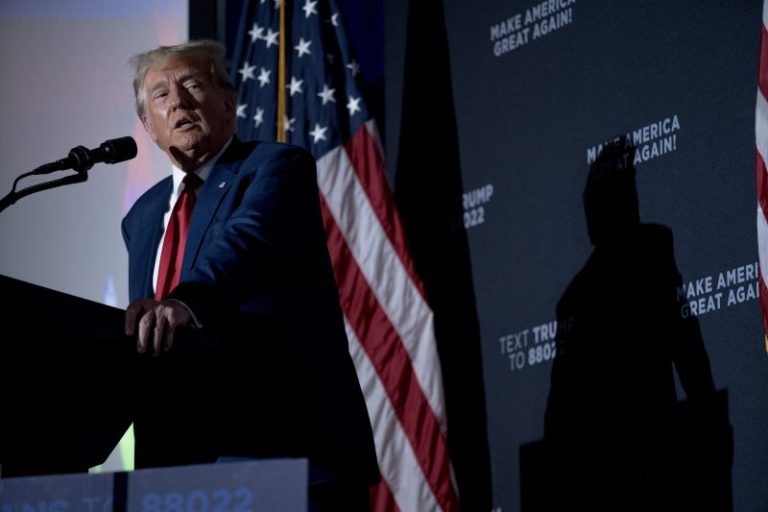The social media company Twitter was forced to hand over records from former president Donald Trump’s account to the special counsel investigating the events leading up to the Jan. 6, 2021, attack and pay sanctions for failing to do so more quickly, as disclosed in an appellate court ruling unsealed Wednesday.
A lower-court judge, Beryl A. Howell, ruled in March that Twitter, now renamed X, had to comply with a sealed search warrant issued by the special counsel and pay $350,000 for missing a court-ordered deadline by three days. The filing also reveals that Howell had found reason to believe that should the search warrant be made public, Trump might engage in obstructive conduct or flee prosecution.
Twitter appealed that decision to the U.S. Court of Appeals for the District of Columbia, which in July upheld Howell’s ruling. Now that Trump has been charged with four felonies related to his attempts to stay in power after losing the 2020 election, the appellate decision has been unsealed.
Attorneys for Twitter did not oppose the search warrant but argued that a gag order preventing the company from alerting Trump to the search violated the First Amendment. The company argued that it should not have to hand over the records until that issue was resolved. Howell sided with the government, finding Twitter in contempt Feb. 7 for failing to comply with the search warrant. She gave Twitter until 5 p.m. to produce the records, with sanctions of $50,000 per day, to double every day that Twitter did not comply. Twitter produced the records three days later.
Trump investigations
End of carousel
The following month, Howell upheld the nondisclosure order and imposed a $350,000 contempt sanction on Twitter. She found that there were “reasonable grounds to believe” that disclosing the warrant to Trump “would seriously jeopardize the ongoing investigation” by giving him “an opportunity to destroy evidence, change patterns of behavior, [or] notify confederates,” according to the appellate ruling. Howell also found the former president might “flee from prosecution,” although the special counsel’s team later said they did not intend to make that argument and it was not included in her final analysis.
In June, the government moved to modify the gag order, saying Twitter could alert Trump to the contents of the warrant — just not the identity of the case agent. That request came shortly after another judge in D.C. unsealed a ruling compelling former vice president Mike Pence to testify against Trump.
Trump was banned from Twitter two days after the Jan. 6 attack. Elon Musk restored Trump’s Twitter access after buying the company in 2022, but the former president has not returned to the platform.
The ruling does not specify what was turned over, but a subpoena could cover draft tweets and direct messages, as well as information on who had access to the account. The grand jury indictment against Trump handed down this month includes references to 18 of Trump’s tweets, including seven from the day of Jan. 6. In those messages, Trump spread false fraud claims, attacked officials who tried to correct the record, rallied supporters to Washington for Jan. 6 and pressured Pence to help overturn the election results.
The panel of three appellate judges found Twitter’s First Amendment rights were not violated, because “the nondisclosure order was a narrowly tailored means of achieving compelling government interests” — protecting the integrity of a grand jury investigation. The appellate court panel — two Biden appointees and one appointee of President Barack Obama — found it was within Howell’s discretion to refuse to delay execution of the search warrant.
The appellate court also upheld Howell’s $350,000 sanction, saying it was reasonable “given Twitter’s $40-billion valuation and the court’s goal of coercing Twitter’s compliance.”
Attorneys and a spokesman for X did not immediately respond to a request for comment.

